Top 10 Kimchi Jjigae Menus
Here are 10 must-try kimchi jjigae dishes, from rich, savory pork kimchi stew to a clean-tasting vegan tofu version.
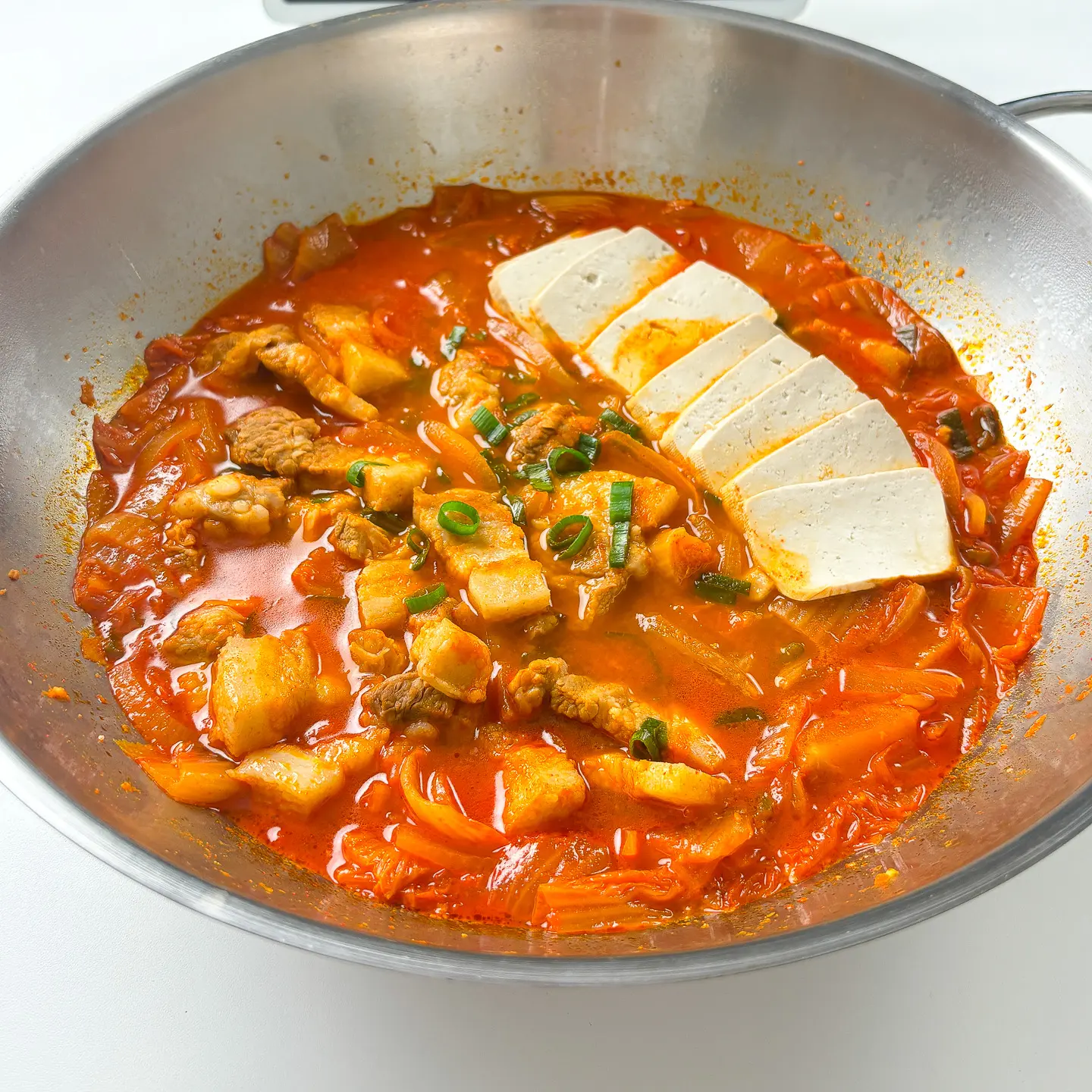
Delicious Kimchi Jjigae Recipe
Before we dive into 10 different kinds of kimchi stew, here’s how to make a truly delicious pot of kimchi chigae.
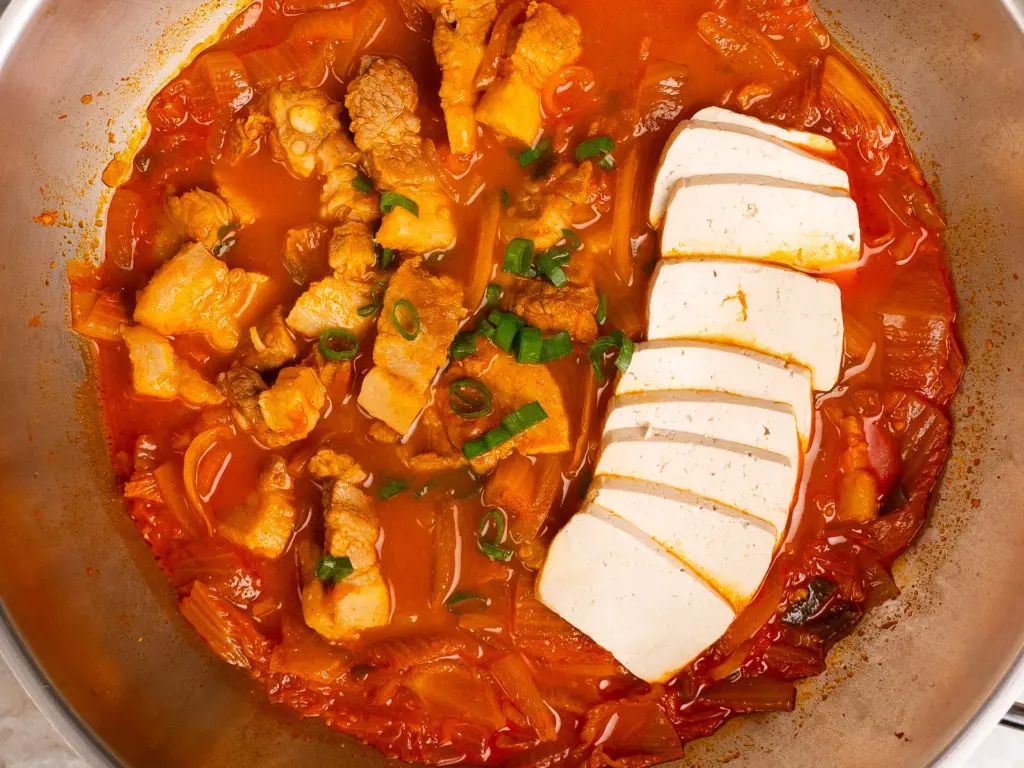
- No Gochujang: Most Koreans don’t add gochujang (Korean red chili paste) to kimchi stew. Gochujang has a strong and distinct flavor that can overpower the dish, making it taste more like gochujang stew even with just a small amount.
- Well-Fermented Kimchi: To make a flavorful kimchi stew, you need well-fermented, sour kimchi. Its aged, tangy taste is the key.
- Long Simmering Time: The longer kimchi stew simmers, the better it gets. The flavors of the kimchi and the other ingredients deepen over time. Many Koreans say it tastes even better the next day and even better the day after that.
- Kimchi Juice: Add kimchi juice for extra depth of flavor. The seasoning from the brine enhances the stew and brings out the full taste of the kimchi.
- Sugar & Vinegar Trick: If your kimchi is too sour, add a spoonful of sugar to balance out the acidity—it makes a big difference. On the other hand, if the kimchi isn’t sour enough, add a spoonful of vinegar to recreate the flavor of well-fermented kimchi.
Kimchi Jjigae Ingredients
- Kimchi: Use well-fermented (sour) kimchi. Whole kimchi leaves (poggi kimchi) give better flavor than pre-cut kimchi.
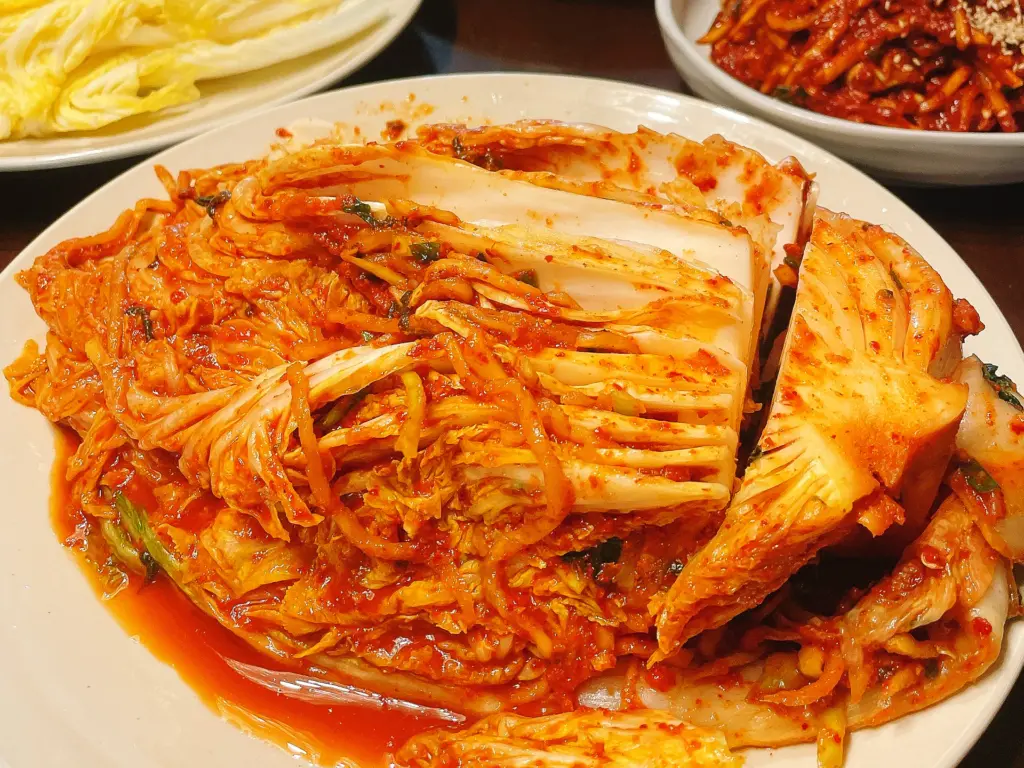
- Main Ingredients: You can use pork, fish, or even ham as the main protein. Some versions also include dumplings.
- Additional Ingredient: Tofu, mushrooms, and green onions are common additions. Garlic and onions are often added for extra depth.
- Fish Sauce: Just 1–2 tablespoons of fish sauce can make the broth much richer and deeper in flavor. With or without it, the difference in umami is huge.
- Broth: A seafood-based broth made with dried anchovies or kelp (dashima) adds a deeper, more complex taste.
- Shop Korean Seafood Broth: US
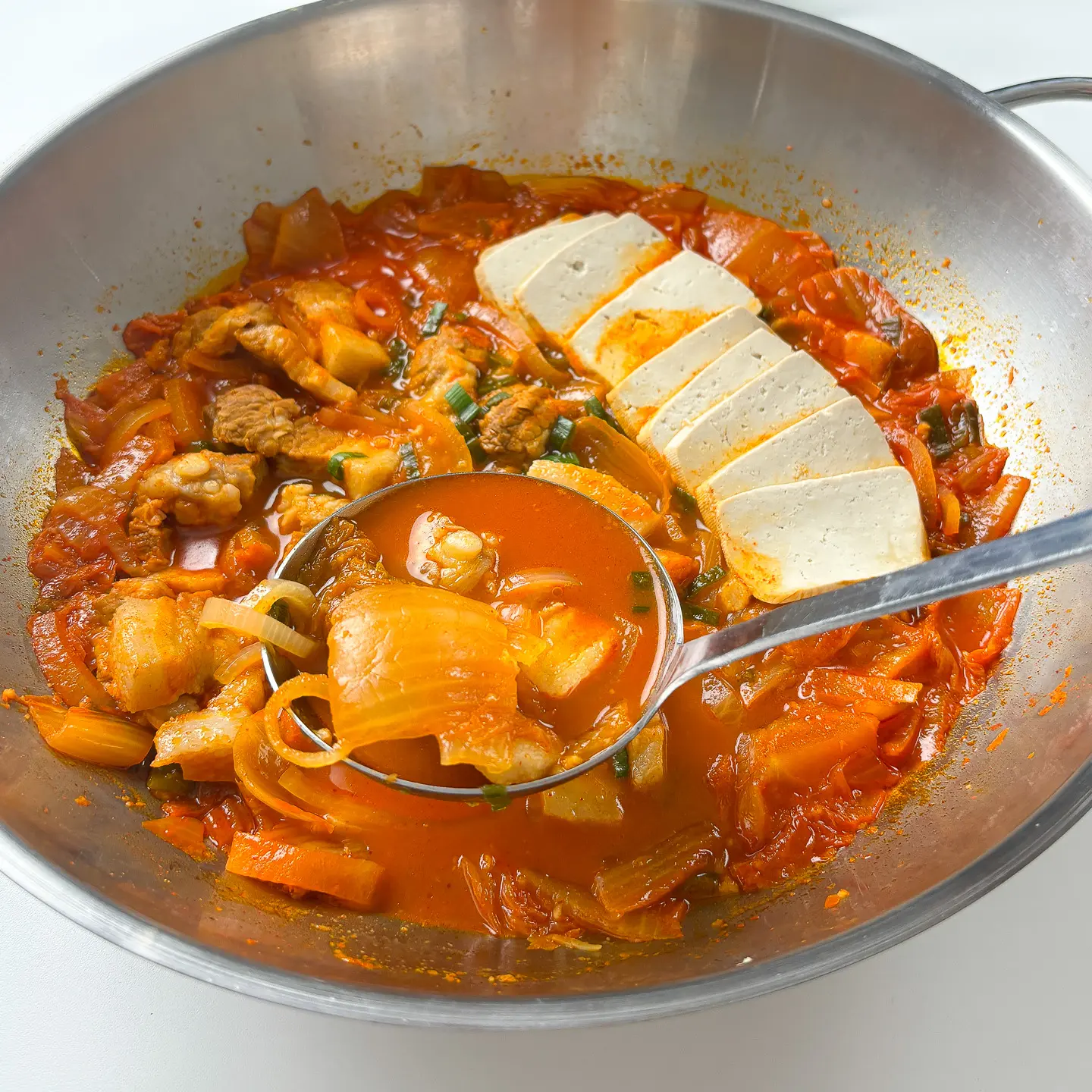
Pots for Jjigae
Ttukbaegi (Korean Earthenware Pot)
Cooking kimchi stew in a ttukbaegi keeps it hot for a long time, so you can enjoy it warm until the very last bite.
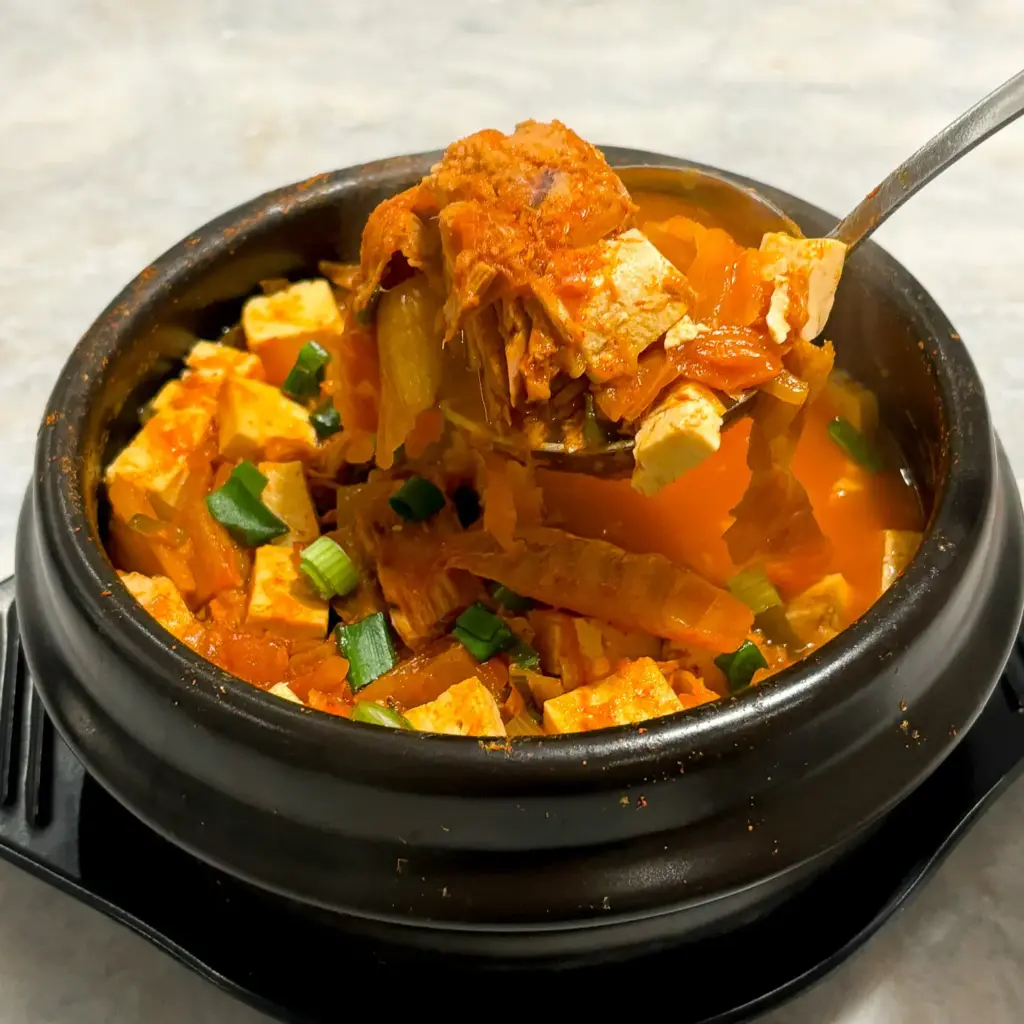
Deep Wok-Style Pot
This type of pot is great for making larger portions. It’s also perfect for dishes like kimchi jjim or budae jjigae (Korean army stew).
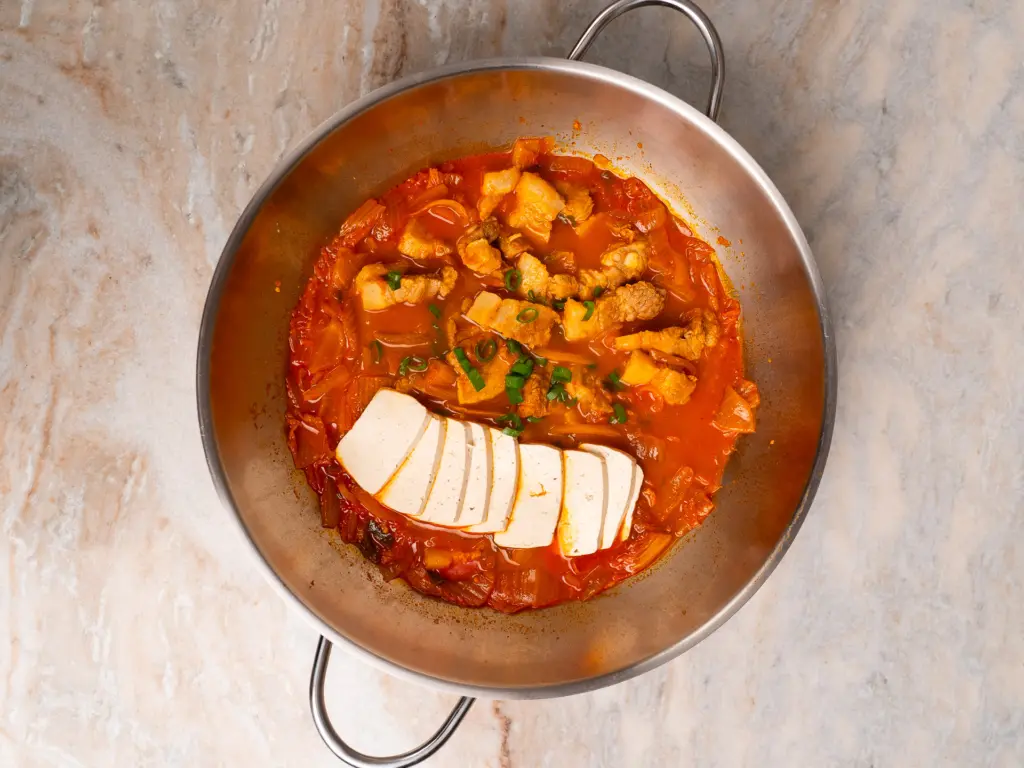
Top 10 Kimchi Jjigae Menus
In Korea, the type of kimchi stew varies widely depending on the main ingredient used. Here are 10 must-try versions of kimchi stew you shouldn’t miss.
Pork Kimchi Jjigae
One of the most beloved versions of kimchi stew in Korea, this stew features pork as the main ingredient. Many people use fatty pork belly (samgyeopsal), but those who prefer a leaner cut often go with pork shoulder or front leg meat. The pork fat melts into the broth, creating a soft, deep, savory flavor.
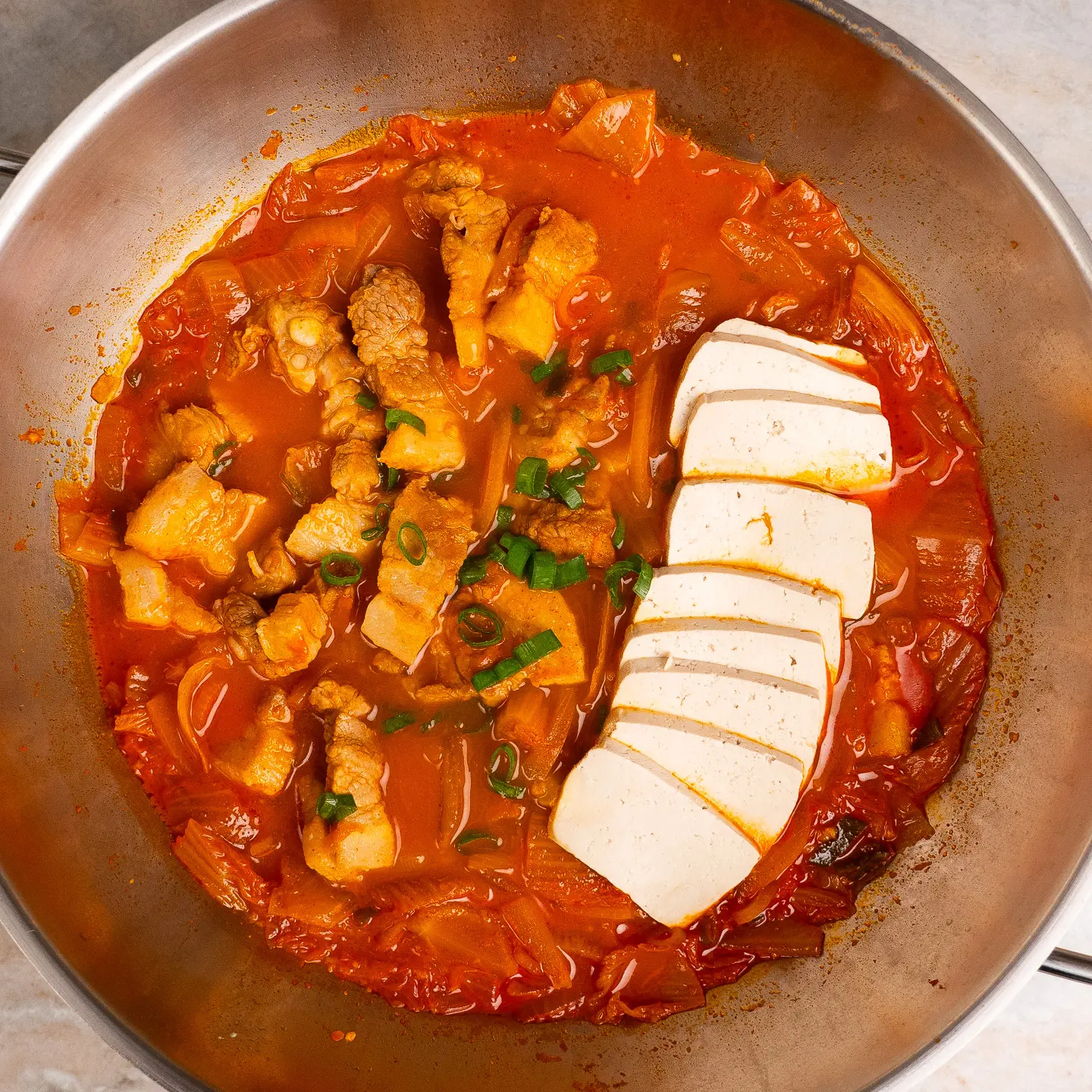
Tuna Kimchi Jjigae
Tuna kimchi stew is one of the easiest stews to make at home in Korea. It’s made with canned tuna, which gives the broth a clean and light taste. Because the ingredients are simple and affordable, it’s a popular go-to meal for students or people living alone.
Authentic Tuna Kimchi Jjigae (Kimchi Stew)
This tuna kimchi stew recipe has the deep, comforting flavor of something your Korean grandmother might make. It’s incredibly easy to cook and perfect for a quick, satisfying meal.
Pacific Saury Kimchi Jjigae
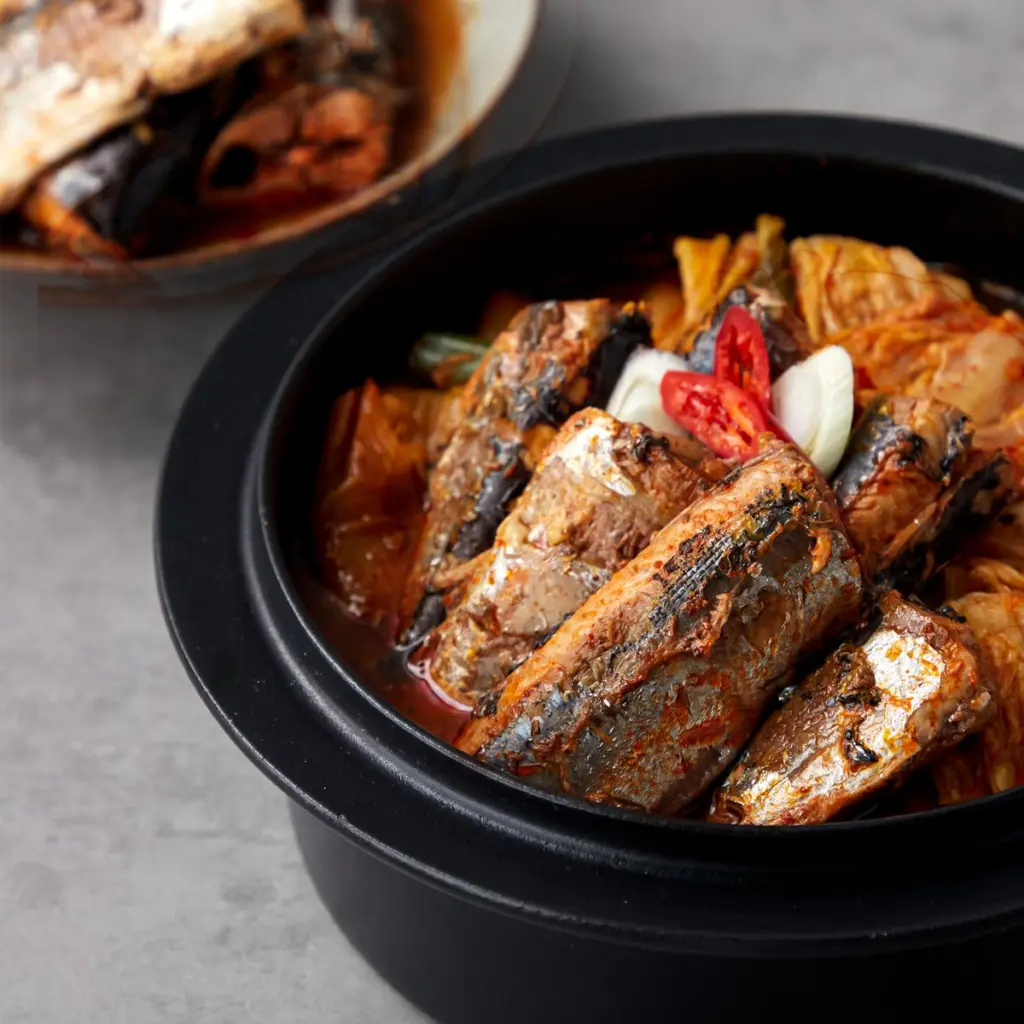
Spam Kimchi Jjigae
Koreans love Spam—it’s used in many dishes, including the well-known budae jjigae. The salty, savory flavor of Spam pairs perfectly with the tanginess of well-fermented kimchi, creating a rich and umami-packed stew. It also tastes amazing when you add a block of instant ramen noodles to cook right in the pot.
Sausage Kimchi Jjigae
This version is made with Vienna sausages. It has a lighter, cleaner umami flavor compared to Spam, yet it still packs a delicious punch. Kids especially enjoy this one, and the juicy, popping texture of the sausages pairs well with the tangy kimchi.
Tofu Kimchi Jjigae
This version features tofu as the main ingredient, which is typically cut into large chunks. The broth is typically made with dried anchovies to create a seafood base. For a vegan version, however, dried kelp (dashima) can be used instead. Regular kimchi often contains anchovy fish sauce and is not vegan, but using vegan kimchi makes this stew 100% plant-based.
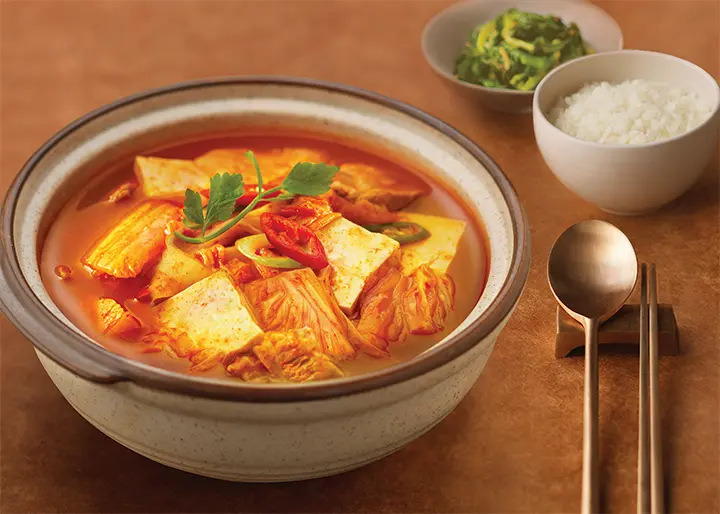
Anchovy Kimchi Jjigae
This version of kimchi stew with anchovies might not be familiar to many Koreans, but it’s something my mom used to make often. My grandmother is from a coastal region where kimchi stew made with anchovies is a local specialty. In those areas, fresh anchovies are sometimes used, but since they’re difficult to find, most people use dried anchovies to make the broth and then simmer the kimchi in it. The result is a bold, deeply flavorful stew with a strong seafood aroma and a clean, umami-rich finish.
Aged Kimchi Jjigae (Omogari Kimchi stew)
This version, called omogari kimchi chigae, uses very old, highly fermented kimchi. It’s packed with a deep, tangy flavor, and it’s so popular in Korea that there are restaurants dedicated to this dish alone.
This is the perfect recipe for using aged kimchi. Do you have expired kimchi in your fridge? It’s the best kind to use!
Easy Pork Kimchi Jjigae with Aged Kimchi
Kkakdugi Kimchi Jjigae
Kimchi stew is usually made with napa cabbage kimchi, but at home, people often use leftover kkakdugi (radish kimchi) or chonggak kimchi (young radish kimchi) to make kimchi stew or kimchi braised dishes. When made with kkakdugi, the stew has a unique crunchiness that sets it apart, and since radish is the main ingredient, the broth develops a naturally sweet and savory depth.
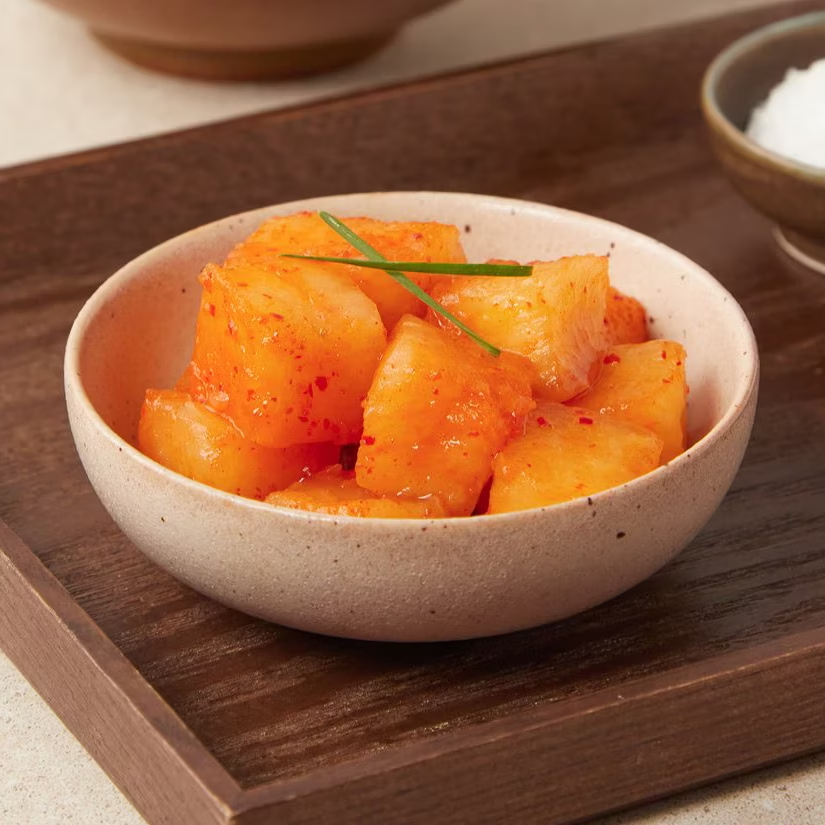
Mandu Kimchi Jjigae
This version uses Mandu (dumplings) and kimchi as the main ingredients. You can use frozen dumplings, making it one of the easiest kimchi stew recipes—my mom’s go-to, actually, haha.
If you want a deeper, richer broth, cut open 2–3 dumplings, remove the wrappers, and add just the filling to the stew. The meat and vegetables inside the dumplings infuse the soup with extra umami and richness.

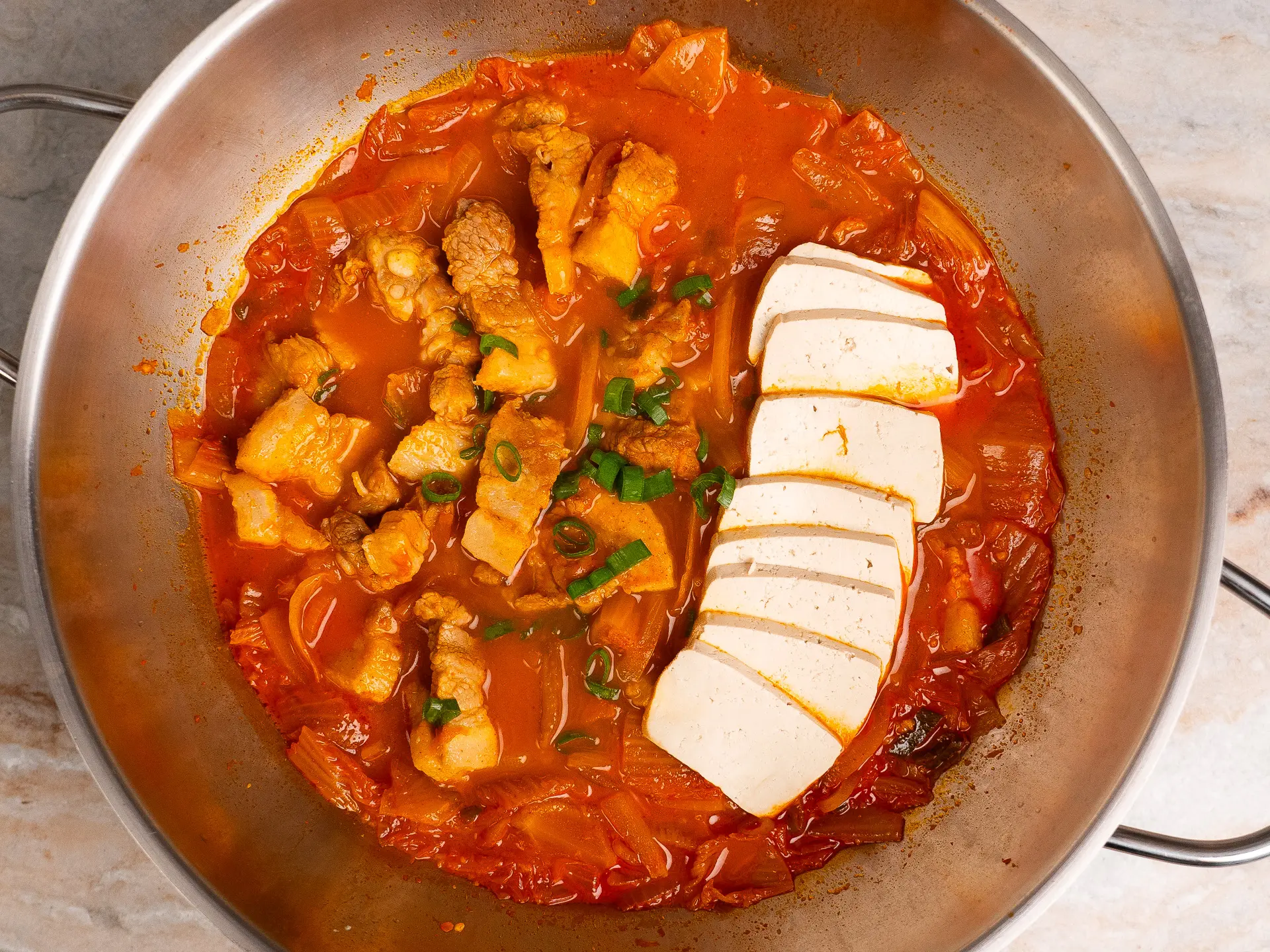
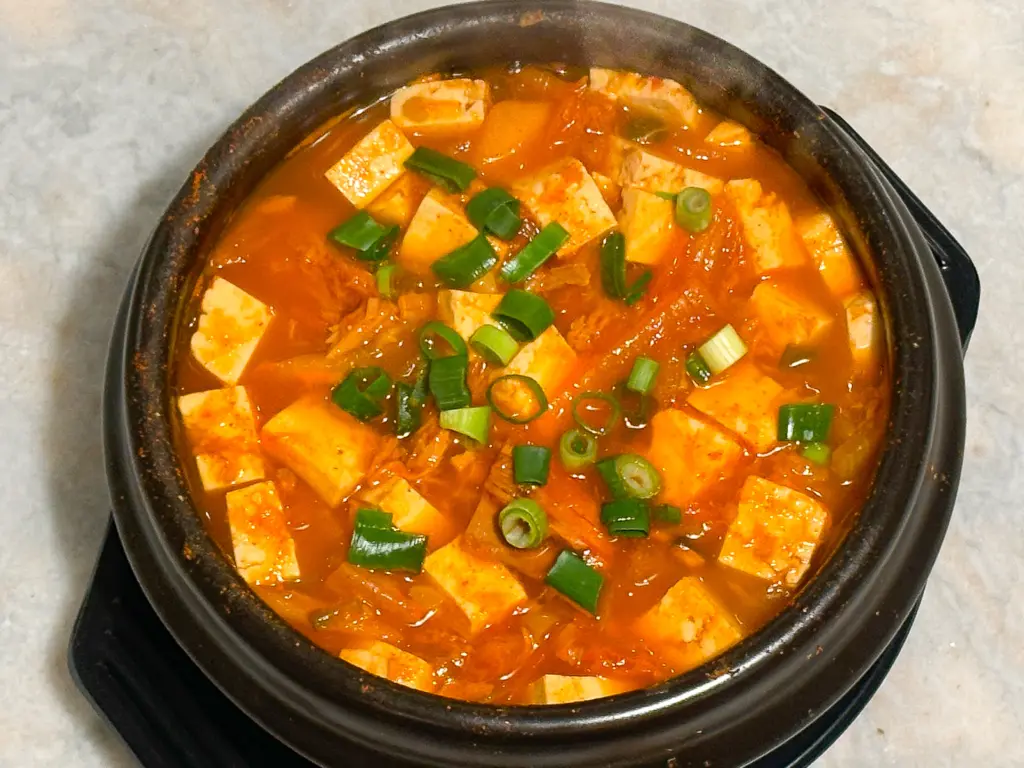
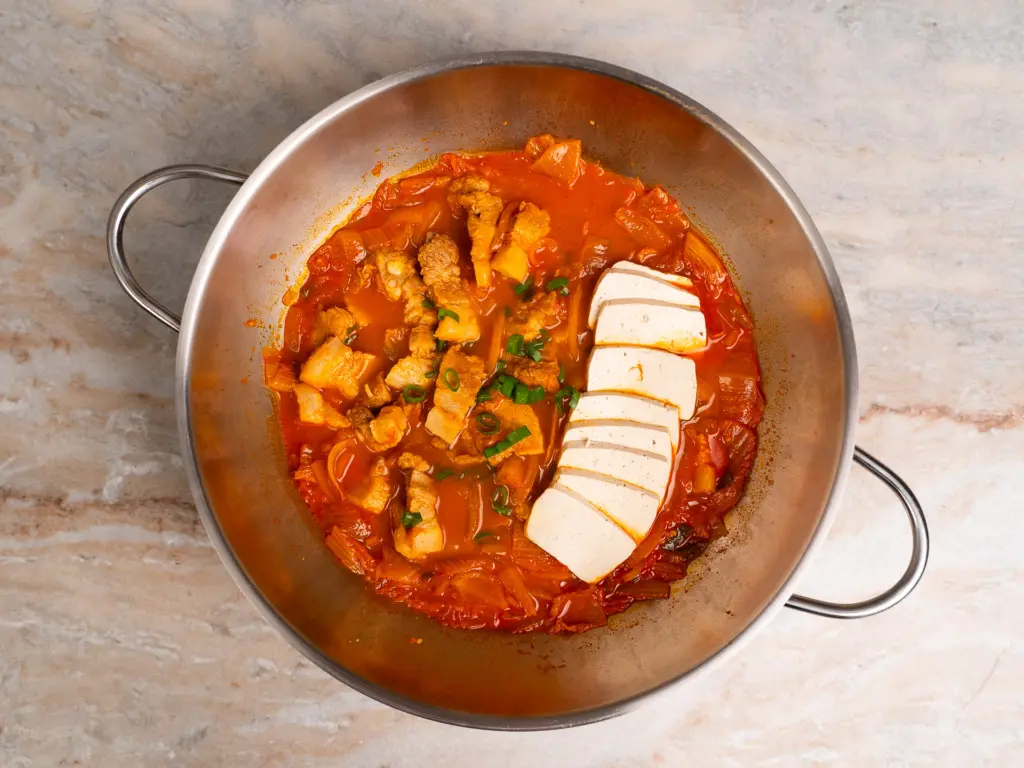
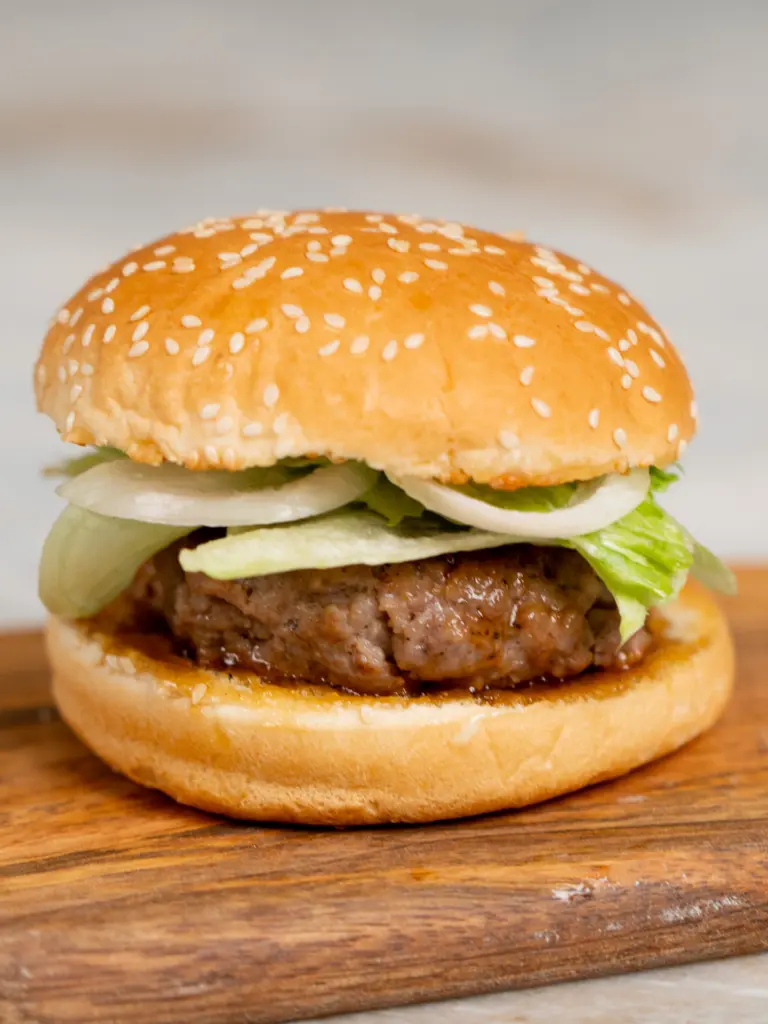
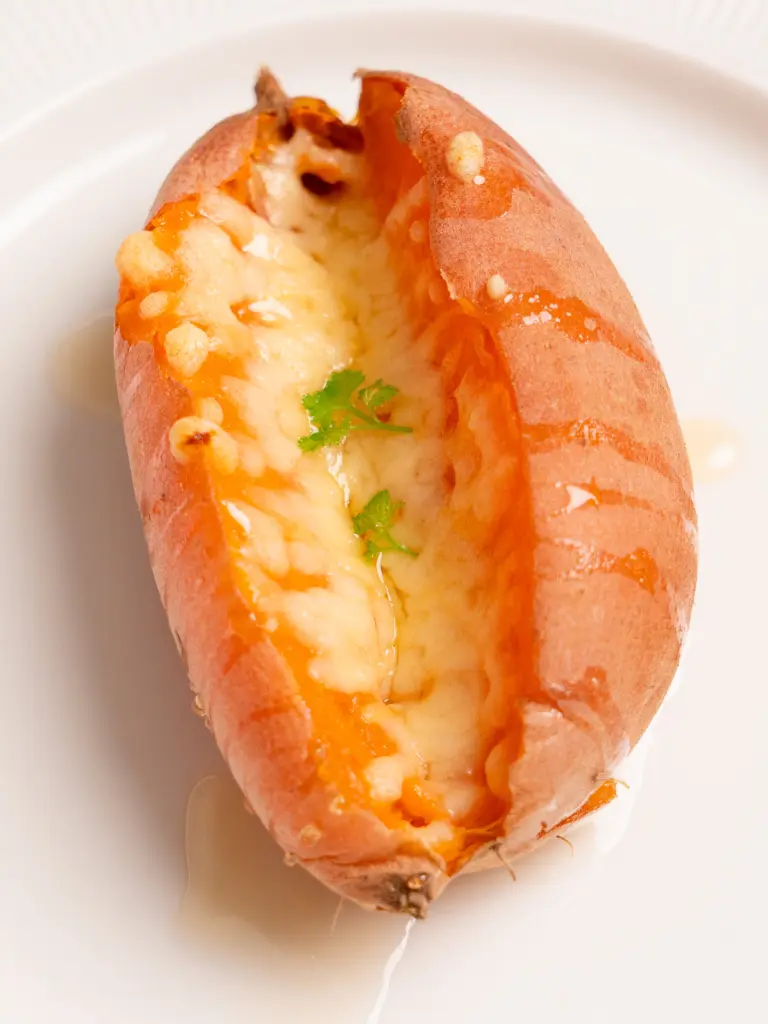
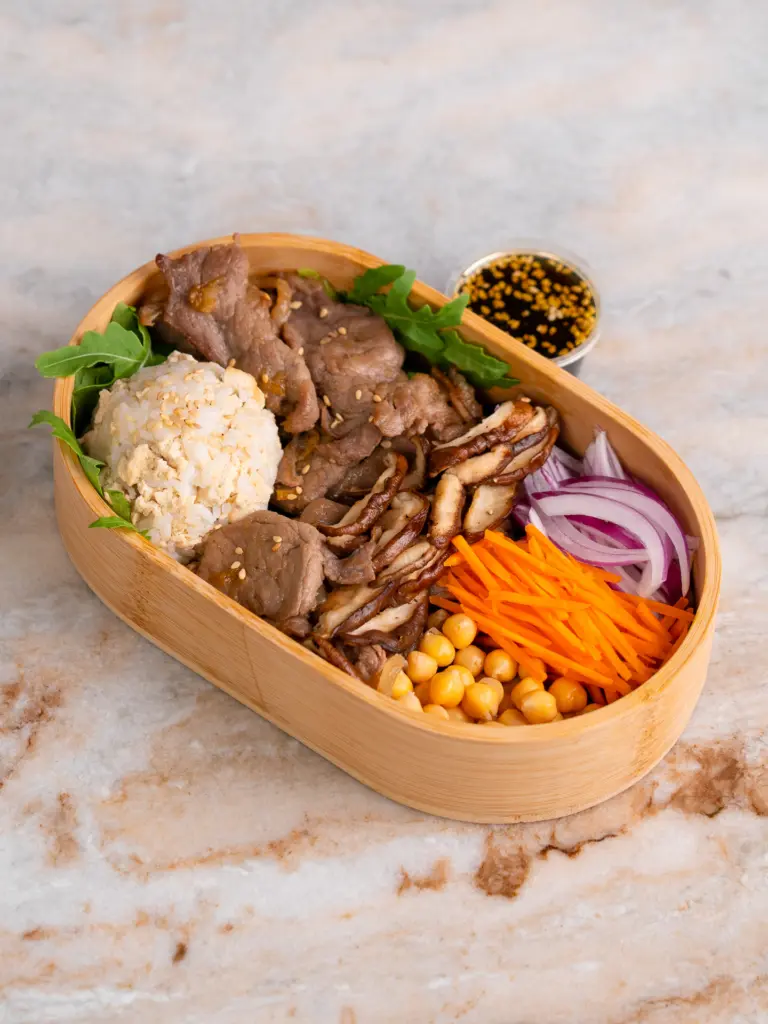

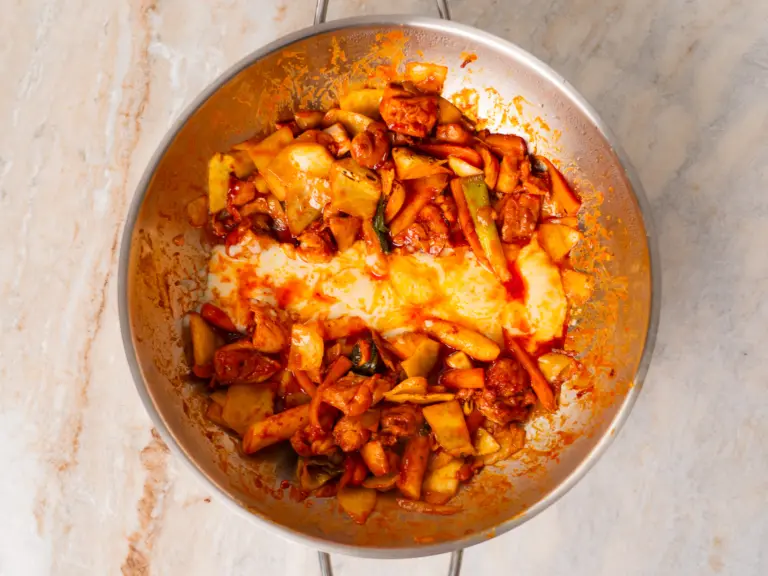

I thought there was just one kimchi jiggae, can’t wait to try more! Can you please make the recipe for the sausage version, seems so tasty!
You will love the sausage version!! Easy and so flavorful!